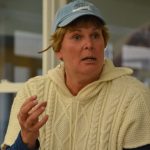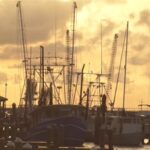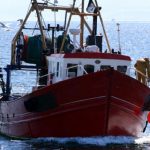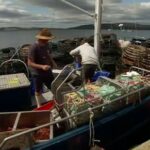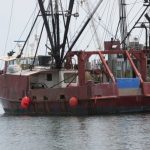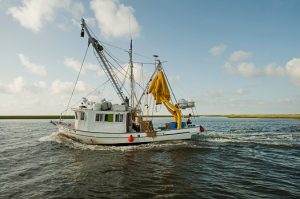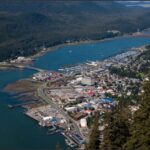Monthly Archives: December 2016
New Report Identifies Sources of Nitrogen Loading in Local Waters
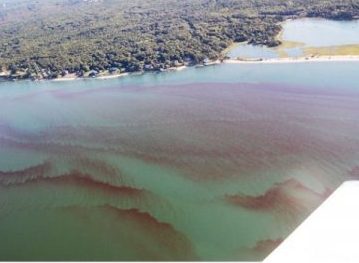 A new report has pinpointed sources of nitrogen loading in local waters. The New York Department of State released the Long Island South Shore Estuary Reserve water quality report on Wednesday, which identifies sources of pollution in eastern bays and takes a closer look at ways to improving the environmental health of local waters, a release said. Nitrogen sources identified in the report include stormwater runoff, drainage or seepage — including seepage from septic systems and cesspools. Other sources include failing or inadequate on-site wastewater treatment systems discharging to the bays, the report says. The “Long Island South Shore Estuary Reserve Eastern Bays Project: Nitrogen Loading, Sources, and Management Options” report was completed in cooperation with Stony Brook University School of Marine and Atmospheric Sciences and is an important step in estimating the amount of nitrogen that causes water degradation to the South Shore of Long Island, officials said. Excess nitrogen has led to an increase in algal blooms, a reduction in seagrass beds that provide habitat for shellfish and finfish and a host of other water quality impairments. The nitrogen pollution has also contributed to the decline of shellfish and commercial fishing on Long Island, the report said. Read the story here 08:21
A new report has pinpointed sources of nitrogen loading in local waters. The New York Department of State released the Long Island South Shore Estuary Reserve water quality report on Wednesday, which identifies sources of pollution in eastern bays and takes a closer look at ways to improving the environmental health of local waters, a release said. Nitrogen sources identified in the report include stormwater runoff, drainage or seepage — including seepage from septic systems and cesspools. Other sources include failing or inadequate on-site wastewater treatment systems discharging to the bays, the report says. The “Long Island South Shore Estuary Reserve Eastern Bays Project: Nitrogen Loading, Sources, and Management Options” report was completed in cooperation with Stony Brook University School of Marine and Atmospheric Sciences and is an important step in estimating the amount of nitrogen that causes water degradation to the South Shore of Long Island, officials said. Excess nitrogen has led to an increase in algal blooms, a reduction in seagrass beds that provide habitat for shellfish and finfish and a host of other water quality impairments. The nitrogen pollution has also contributed to the decline of shellfish and commercial fishing on Long Island, the report said. Read the story here 08:21
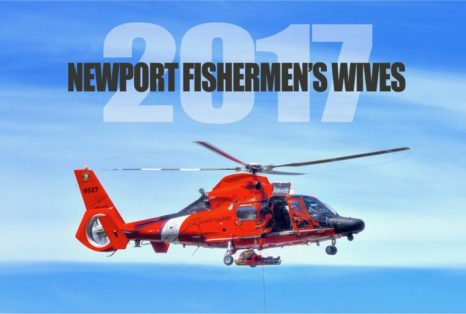
Fishermen’s Wives Calendar for 2017 now available!
Fishermen’s Wives are super proud of our 1st Newport Fisherman’s Wives Calendar and ever so thankful that we and the community came together to keep our Coast Guard Rescue Helicopter here in Newport to continue to save lives. We are also very thankful for photographer Ken Gagne and his amazing photos and the sponsors that purchased ads in the Calendar and the businesses that are selling it. 100% of the proceeds goes directly back to Newport Fishermen’s Wives to help our fishing fleet and our community. Read the rest, and there is a link to order yours today. 20:25
Lawsuit: Investment in Bahamian crab company nets $200,000 from Tampa businessmen
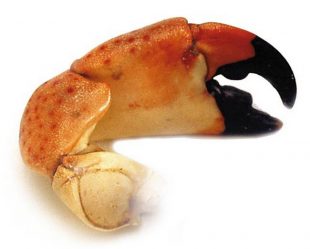 Brett Ory visited the Bahamas in May 2015 to see the crabbing company in which he and his father, Ronnie Ory, had invested $100,000. Brett Ory, 38, said he inspected a processing facility, fishing and stone crab trapping boats and 45 acres of prime property on the Bahamas Long Island, all supposedly controlled by Ruskin-based High Cotton Bahamas. A month later, Ory said he wired an additional $100,000 to High Cotton after its representatives told him they needed capital to buy more boats. But it turned out that High Cotton was something of an illusion, according to lawsuits filed by the Orys. Read the story here 18:52
Brett Ory visited the Bahamas in May 2015 to see the crabbing company in which he and his father, Ronnie Ory, had invested $100,000. Brett Ory, 38, said he inspected a processing facility, fishing and stone crab trapping boats and 45 acres of prime property on the Bahamas Long Island, all supposedly controlled by Ruskin-based High Cotton Bahamas. A month later, Ory said he wired an additional $100,000 to High Cotton after its representatives told him they needed capital to buy more boats. But it turned out that High Cotton was something of an illusion, according to lawsuits filed by the Orys. Read the story here 18:52
More of Commercial Dungeness Crab Fishery to Open from Point Arena to Ten Mile; One Area Still Closed
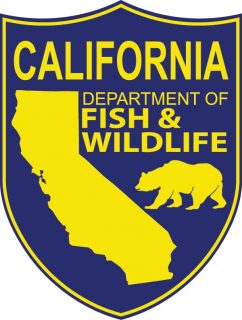 On Dec. 29, more of the California coastline will open to the commercial Dungeness crab fishery. Some previously closed areas will open at the recommendation of state health agencies, the California Department of Fish and Wildlife (CDFW) announced today. The area between Point Arena and Ten Mile River in Mendocino County will open on Dec. 29. However, due to persisting conditions of elevated domoic acid levels, the fishery will remain closed between Ten Mile River and Shelter Cove. The closed portions of the coast may open once testing by state agencies shows that domoic acid in crabs from the area no longer poses a significant risk to public health. On Dec. 29 at 12:01 a.m., the commercial Dungeness crab season will open from 38° 57.5′ N. Lat. (near Point Arena) to 39° 33.3′ N. Lat. (near Ten Mile River).The opener in this area will be preceded by a 64-hour pre-soak period commencing at 8 a.m. on Dec. 26. The area between Ten Mile River and Shelter Cove will remain closed until,,, Read the press release here 17:46
On Dec. 29, more of the California coastline will open to the commercial Dungeness crab fishery. Some previously closed areas will open at the recommendation of state health agencies, the California Department of Fish and Wildlife (CDFW) announced today. The area between Point Arena and Ten Mile River in Mendocino County will open on Dec. 29. However, due to persisting conditions of elevated domoic acid levels, the fishery will remain closed between Ten Mile River and Shelter Cove. The closed portions of the coast may open once testing by state agencies shows that domoic acid in crabs from the area no longer poses a significant risk to public health. On Dec. 29 at 12:01 a.m., the commercial Dungeness crab season will open from 38° 57.5′ N. Lat. (near Point Arena) to 39° 33.3′ N. Lat. (near Ten Mile River).The opener in this area will be preceded by a 64-hour pre-soak period commencing at 8 a.m. on Dec. 26. The area between Ten Mile River and Shelter Cove will remain closed until,,, Read the press release here 17:46
How False killer whale’s remove bait from longline fishing gear captured on video for first time
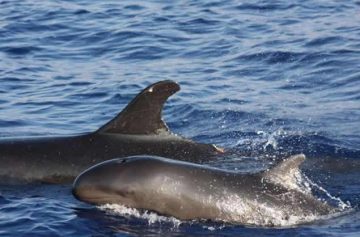 How Hawaiian false killer whales remove fish from longline fishing gear has for the first time been observed by a team of researchers and fishermen. The team, coordinated by Scripps Institution of Oceanography at the University of California San Diego scientist Aaron Thode, used video and audio recordings to observe false killer whales removing fish from a longline fishing hook, a behavior known as depredation. They gained new insight into a behavior that has caused false killer whales to entangle with fishing gear at rates deemed unsustainable by the U.S. National Marine Fisheries Service. To observe false killer whales removing fish from hooks, the Alaskan and Hawaiian research team deployed an underwater camera, sound recorder, and vibration detector on long-line fishing gear deployed by fishing vessels off Hawaii. Read the article here 16:40
How Hawaiian false killer whales remove fish from longline fishing gear has for the first time been observed by a team of researchers and fishermen. The team, coordinated by Scripps Institution of Oceanography at the University of California San Diego scientist Aaron Thode, used video and audio recordings to observe false killer whales removing fish from a longline fishing hook, a behavior known as depredation. They gained new insight into a behavior that has caused false killer whales to entangle with fishing gear at rates deemed unsustainable by the U.S. National Marine Fisheries Service. To observe false killer whales removing fish from hooks, the Alaskan and Hawaiian research team deployed an underwater camera, sound recorder, and vibration detector on long-line fishing gear deployed by fishing vessels off Hawaii. Read the article here 16:40
Chumash Heritage National Marine Sanctuary would be problematic for fisheries
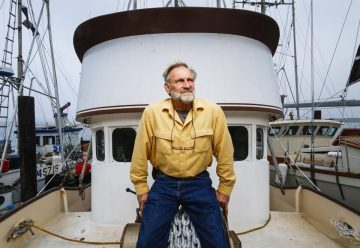 Since November, the Sierra Club, as well as Surfrider and EcoSLO, have had full-page ads in The Tribune telling of what to expect, in their opinion, from a sanctuary in our area. They indicated sums of money the sanctuary generated annually from commercial fishing and jobs in the commercial fishing industry that sanctuaries support. As a member of the fishing community for 37 years here on the Central Coast, I know what they have written is unequivocally false.The Monterey Bay National Marine Sanctuary in 1992 guaranteed us and made it part of their designation document (contract) that they would not manage fisheries. The sanctuary had multiple infractions of this rule in which they helped to close many areas to commercial fishing in flagrant disregard for our contractual agreement. Read the rest here 13:33
Since November, the Sierra Club, as well as Surfrider and EcoSLO, have had full-page ads in The Tribune telling of what to expect, in their opinion, from a sanctuary in our area. They indicated sums of money the sanctuary generated annually from commercial fishing and jobs in the commercial fishing industry that sanctuaries support. As a member of the fishing community for 37 years here on the Central Coast, I know what they have written is unequivocally false.The Monterey Bay National Marine Sanctuary in 1992 guaranteed us and made it part of their designation document (contract) that they would not manage fisheries. The sanctuary had multiple infractions of this rule in which they helped to close many areas to commercial fishing in flagrant disregard for our contractual agreement. Read the rest here 13:33
Battle To Watch: Trump Versus the “We Be’s”
 There are a lot of hot battles to watch out for in 2017. President Trump versus Congress. President Trump versus the press. President Trump versus the Democrats. President Trump versus the Chinese, Mexico, Iran, and the Islamic State. But one of the potentially most explosive of all will be Trump versus the bureaucracy. The executive branch civilian workforce numbers about 2.7 million; the uniformed military are another 1.5 million. Against that more or less permanent federal workforce of roughly 4 million people, President Trump gets to fill maybe 4,000 jobs. A lecturer at Harvard’s Kennedy School of Government, Robert Behn, writes about this as “the law of diminishing control: the larger any organization becomes, the weaker is the control over its actions exercised by those at the top.” He says bureaucrats speak of “residents” and “tourists” — the residents are the bureaucrats, the tourists are political appointees, just passing through. Or, Behn writes, a member of the permanent government refers to himself or herself as a “We Be” — as in, “We be here before you’re here. We be here after you’re here.” Read the story here 11:36
There are a lot of hot battles to watch out for in 2017. President Trump versus Congress. President Trump versus the press. President Trump versus the Democrats. President Trump versus the Chinese, Mexico, Iran, and the Islamic State. But one of the potentially most explosive of all will be Trump versus the bureaucracy. The executive branch civilian workforce numbers about 2.7 million; the uniformed military are another 1.5 million. Against that more or less permanent federal workforce of roughly 4 million people, President Trump gets to fill maybe 4,000 jobs. A lecturer at Harvard’s Kennedy School of Government, Robert Behn, writes about this as “the law of diminishing control: the larger any organization becomes, the weaker is the control over its actions exercised by those at the top.” He says bureaucrats speak of “residents” and “tourists” — the residents are the bureaucrats, the tourists are political appointees, just passing through. Or, Behn writes, a member of the permanent government refers to himself or herself as a “We Be” — as in, “We be here before you’re here. We be here after you’re here.” Read the story here 11:36
Craig Medred: Fish fight end?
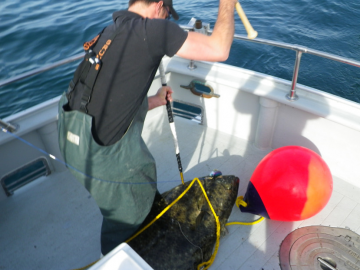 The North Pacific Fisheries Council has taken an unprecedented step to try to increase the value of halibut to the Alaska economy by allowing a yet-to-be-created, charter-boat fishing entity to buy fish from willing commercial fishing interests in order to boost sport harvests. Efforts to shift some of the halibut harvest back toward tourism businesses comes in the wake of a study indicating that “individual fishery quotas” created for the commercial halibut fishery in the early 1990s have not worked out quite as planned. A well-intentioned idea, IFQs (Eye-F-Cues) as everyone in the fishing industry calls them, were intended to shift halibut harvests away from big-boat operations toward individual fishermen working as owner-operators of fishing businesses hopefully based in Alaska. But that isn’t exactly how things turned out. Read the rest of the story here 10:58
The North Pacific Fisheries Council has taken an unprecedented step to try to increase the value of halibut to the Alaska economy by allowing a yet-to-be-created, charter-boat fishing entity to buy fish from willing commercial fishing interests in order to boost sport harvests. Efforts to shift some of the halibut harvest back toward tourism businesses comes in the wake of a study indicating that “individual fishery quotas” created for the commercial halibut fishery in the early 1990s have not worked out quite as planned. A well-intentioned idea, IFQs (Eye-F-Cues) as everyone in the fishing industry calls them, were intended to shift halibut harvests away from big-boat operations toward individual fishermen working as owner-operators of fishing businesses hopefully based in Alaska. But that isn’t exactly how things turned out. Read the rest of the story here 10:58
Gold Coast woman catches sandcrab that’s a dead ringer for Michael Jackson
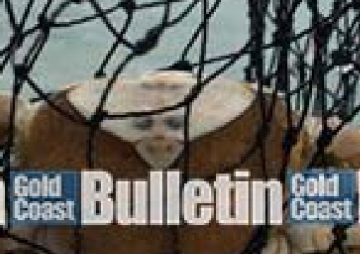 An uncanny likeness of late pop-megastar Michael Jackson has appeared on the backside of an egg-bearing female sand crab hauled from the Tweed River. In what can only be described as a Christmas miracle the top-shelling artist was reeled in — rather than caught in a pot — by Currumbin local Megan Short on Tuesday afternoon. The real Thriller was when Ms Short looked at the photos she took of the crab, which also happened to have only had one white claw. “I thought oh my god that’s Michael Jackson’s face!” the 41-year-old said. Commercial fisherman Ben Markwell has been fishing in the Tweed region for more than 30 years and had never seen anything like Michael Jackson’s face on the backside of a crab. “I’ve never seen a face like that on a blue swimmer crab,” he said. “When I saw it I went oh s*** – that’s a face there.” Read the rest here 10:14
An uncanny likeness of late pop-megastar Michael Jackson has appeared on the backside of an egg-bearing female sand crab hauled from the Tweed River. In what can only be described as a Christmas miracle the top-shelling artist was reeled in — rather than caught in a pot — by Currumbin local Megan Short on Tuesday afternoon. The real Thriller was when Ms Short looked at the photos she took of the crab, which also happened to have only had one white claw. “I thought oh my god that’s Michael Jackson’s face!” the 41-year-old said. Commercial fisherman Ben Markwell has been fishing in the Tweed region for more than 30 years and had never seen anything like Michael Jackson’s face on the backside of a crab. “I’ve never seen a face like that on a blue swimmer crab,” he said. “When I saw it I went oh s*** – that’s a face there.” Read the rest here 10:14
FISH-NL calls on province to lift restrictions on outside buyers; challenges FFAW to outline its stand
 The Federation of Independent Sea Harvesters of Newfoundland and Labrador (FISH-NL) has proposed that the provincial government lift all restrictions and allow out-of-province buyers into the provincial marketplace for all species. “An open and free market in the fishing industry would, at best, result in increased competition and more money in the pockets of fish harvesters,” says Ryan Cleary, President of FISH-NL. “At worst, it would keep local buyers honest.” Cleary made the proposal in a letter this week to Steve Crocker, Minister of Fisheries, Forestry and Agrifoods. FISH-NL also proposes that restrictions be lifted on local fish buyers to permit them to buy all species. FISH-NL’s proposal was made following an intensive, province-wide consultation with thousands of fish harvesters, whose support for out-of-province buyers is unanimous. “Fish harvesters and fish harvesters alone drive the agenda of FISH-NL,” said Cleary, “and harvesters across the province have been unanimous is saying that outside buyers should be allowed in.” FISH-NL is attempting to break harvesters away from the FFAW into their own separate union, and the consultation was part of the certification drive. The FFAW has failed to raise the issue of outside buyers because of their obvious conflict of interest in representing both harvesters and plant workers under the one umbrella. “With the decline of crab and shrimp and the growing reliance on resurging ground fish, it’s critical that harvesters be paid the highest possible price for their catch,” said Cleary. “That can only happen if the door is open to outside buyers.” 09:38
The Federation of Independent Sea Harvesters of Newfoundland and Labrador (FISH-NL) has proposed that the provincial government lift all restrictions and allow out-of-province buyers into the provincial marketplace for all species. “An open and free market in the fishing industry would, at best, result in increased competition and more money in the pockets of fish harvesters,” says Ryan Cleary, President of FISH-NL. “At worst, it would keep local buyers honest.” Cleary made the proposal in a letter this week to Steve Crocker, Minister of Fisheries, Forestry and Agrifoods. FISH-NL also proposes that restrictions be lifted on local fish buyers to permit them to buy all species. FISH-NL’s proposal was made following an intensive, province-wide consultation with thousands of fish harvesters, whose support for out-of-province buyers is unanimous. “Fish harvesters and fish harvesters alone drive the agenda of FISH-NL,” said Cleary, “and harvesters across the province have been unanimous is saying that outside buyers should be allowed in.” FISH-NL is attempting to break harvesters away from the FFAW into their own separate union, and the consultation was part of the certification drive. The FFAW has failed to raise the issue of outside buyers because of their obvious conflict of interest in representing both harvesters and plant workers under the one umbrella. “With the decline of crab and shrimp and the growing reliance on resurging ground fish, it’s critical that harvesters be paid the highest possible price for their catch,” said Cleary. “That can only happen if the door is open to outside buyers.” 09:38
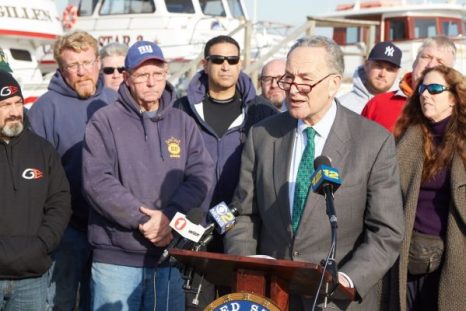
Fishing advocates seek delay in new limits on fluke fishing
Fishing advocates seeking to head off what they described as “devastating” reductions in the New York quota for fluke next year are calling on federal regulators to forestall planned 2017 cuts until a more current assessment of the fish population is completed. Led by frequent fishing advocate Sen. Chuck Schumer, a group of 50 recreational and commercial fishing boat captains and advocates gathered at the Captree Boat Basin in Babylon Thursday to say a planned 30 percent reduction would threaten hundreds of businesses. Schumer said he plans to reach out to the U.S. Department of Commerce and its newly nominated secretary, Wilbur Ross, to address his concerns, including requesting an expedited fluke population assessment and a suspension of the new cuts until improved data is available. Schumer said he was hopeful that Ross, a New Yorker who was once an adviser on the Long Island Lighting Co. buyout by LIPA, could step in to forestall management moves by the National Oceanic and Atmospheric Administration, which oversees councils that manage the fluke fishery. Schumer said he would reach out to President-elect Donald Trump, Ross and “whoever I have to to get this changed.” Read the story here 20:06
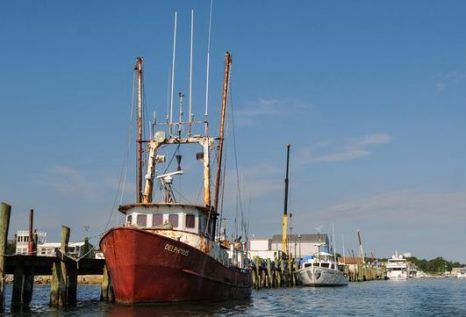
Baltimore Canyon “urban sanctuary” off OC worries fishermen
Capt. Monty Hawkins of Morning Star Fishing in Ocean City said the protection of one small patch of ocean does nothing to protect the ocean environment as a whole. “We have to do a whole lot better than what we are doing,” Hawkins said. “But taking the Baltimore Canyon and protecting the area directly around it is incredibly distressing, these are areas filled with recreational fishermen and commercial fishermen.” While the designation is said to not impact recreational fishing, the unique designation has worried local politicians and fishermen alike, who believe that the sanctuary status could impact the local economy; whether by curbing recreational and tournament fishing or impacting commercial vessels. In Maryland, offshore commercial fishing brings in around $78.2 million annually, or roughly 35 percent of the average annual catch for the Mid-Atlantic Coastline, according to the National Aquarium’s proposal to the NOAA. Read the story here 16:22
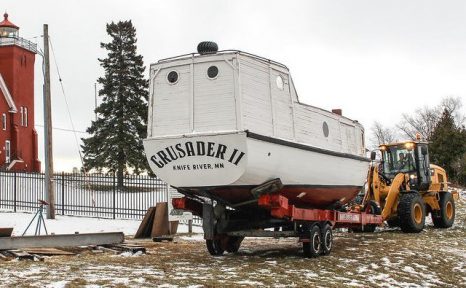
Historical Society donates fishing tug to Knife River
A historical landmark paying homage to the North Shore’s once-thriving commercial fishing industry began its journey Wednesday back to where it was built in 1939. After sitting on the shore of Agate Bay in Two Harbors for 26 years, the fishing tug Crusader II was lifted off its supports, placed on a trailer and hauled off to Knife River in the hopes of restoring it to its former glory. “We are basically giving the Crusader back to the community of Knife River as a Christmas present more or less,” Mel Sando, director of the Lake County Historical Society, said as he watched a crew from Knife River Marina secure the boat to the trailer. Used primarily for catching herring in Lake Superior, the Crusader II was built in Larsmont by Reuben and Helmer Hill and was christened in Knife River by Crown Prince Olav of Norway during his visit to the North Shore, according to the Historical Society. “A group from Knife River approached the Historical Society and asked if they could have the boat back,” Sando said. “We recognize that they are in a much better position to provide good stewardship for the boat.” Read the story here 14:47
Global demand for lobster surges
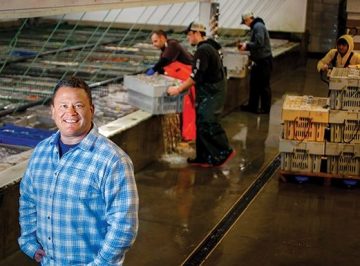 Tom Adams, the founder, owner and CEO of Maine Coast in York, recently honored by Mainebiz as its 2016 medium-size fastest growing company, says exports have played a big role in the company’s success. Four years after a glut led to the cheapest lobsters since the 1980s, prices on average for lobster are up 37% this year and the highest on record going back decades. But that hasn’t dampened demand. Bloomberg reported that U.S. and Canadian fishermen are catching more lobster than ever in recent years, yet output hasn’t kept pace with demand: Exports to China are surging and American restaurants increasingly are adding lobster to various dishes on their menus. “The market now is outstripping the supply,” Bernie Berry, president of the Yarmouth, Nova Scotia-based Cold Water Lobster Association, which represents fisherman in Canada, told Bloomberg. Read the rest here 12:00
Tom Adams, the founder, owner and CEO of Maine Coast in York, recently honored by Mainebiz as its 2016 medium-size fastest growing company, says exports have played a big role in the company’s success. Four years after a glut led to the cheapest lobsters since the 1980s, prices on average for lobster are up 37% this year and the highest on record going back decades. But that hasn’t dampened demand. Bloomberg reported that U.S. and Canadian fishermen are catching more lobster than ever in recent years, yet output hasn’t kept pace with demand: Exports to China are surging and American restaurants increasingly are adding lobster to various dishes on their menus. “The market now is outstripping the supply,” Bernie Berry, president of the Yarmouth, Nova Scotia-based Cold Water Lobster Association, which represents fisherman in Canada, told Bloomberg. Read the rest here 12:00
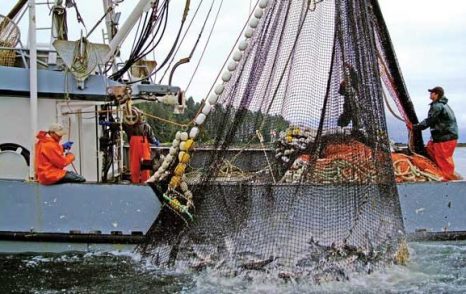
Year in Review: Alaska Fisheries – Board shakeup, drifters win, sockeyes up as pinks, crab crash
After a hectic fisheries year in 2015 involving felony charges, forced retirements and resignations, the 2016 Board of Fisheries confirmation cycle was mild, with few of last year’s inflamed arguments. This board shakeup precedes the Board of Fisheries Upper Cook Inlet finfish meeting in early 2017, which is held once every three years and is highly charged by the conflicts between user groups. The last two years took a toll on fisheries leadership, including one botched interview, one forced resignation, three failed nominations, a fistful of felony charges against one of those nominees, and two recent resignations — one by chairman Tom Kluberton who cited political burnout and stress, the other by Bob Mumford, coming before he even had the chance to be confirmed by the Legislature. Unlike 2015, Board of Fisheries appointees had no trouble being confirmed in a rare occurrence for the Legislature. In April 2016, the Legislature unanimously confirmed Al Cain, Israel Payton, and Robert Ruffner to the Board of Fisheries, replacing Mumford, Fritz Johnson and Kluberton. Last year, Ruffner’s confirmation hearing went especially wrong after a sustained campaign by sportfishing groups to characterize him as holding commercial fishing sympathies. The Legislature failed to confirm him on a 29-30 vote in 2015 but unanimously approved him in 2016. Read the Year in Review here 11:35
Maine lobsterman grateful for presidential pardon
 A well respected midcoast fisherman who was granted clemency Monday by President Obama for a drug crime he committed more than 30 years ago says he’s pleased to close that chapter of his life. “It gives me a sense of forgiveness, is what it does,” Robert S. ‘Bob’ Baines said Wednesday morning in the driveway of his South Thomaston home, taking a break from getting a pair of motorcycles ready for winter storage. In 1986, Baines was convicted in a marijuana distribution conspiracy, netting him a six-year prison sentence. He declined Wednesday to go into detail about the crime, but said it’s a chapter he’s pleased to close out now. Dave Cousens, president of the MLA, said Wednesday he asked Baines to join 25 years ago, and that Baines has been an important part of the organization ever since. Read the rest of the story here 10:40
A well respected midcoast fisherman who was granted clemency Monday by President Obama for a drug crime he committed more than 30 years ago says he’s pleased to close that chapter of his life. “It gives me a sense of forgiveness, is what it does,” Robert S. ‘Bob’ Baines said Wednesday morning in the driveway of his South Thomaston home, taking a break from getting a pair of motorcycles ready for winter storage. In 1986, Baines was convicted in a marijuana distribution conspiracy, netting him a six-year prison sentence. He declined Wednesday to go into detail about the crime, but said it’s a chapter he’s pleased to close out now. Dave Cousens, president of the MLA, said Wednesday he asked Baines to join 25 years ago, and that Baines has been an important part of the organization ever since. Read the rest of the story here 10:40
California’s higher fees for out of state commercial fishing licenses upheld
 California’s nonresident fee differential for four commercial fishing licenses, vessel registration and permits is constitutional, the U.S. 9th District Court of Appeals says. A certified class of nonresident commercial fishers challenges the fee differentials under the Privileges and Immunities Clause and the Equal Protection Clause of the U.S. Constitution. “We hold that California’s fee differentials do not violate either clause,” says the majority opinion, written by Judge William Fletcher. California’s higher fees for out of state commercial fishing vessel registrations, fishing licenses, Dungeness crab permits, and herring gill net permits were less than the amount by which California subsidized the management of the nonresidents’ portions of its commercial fishery, the court says, thus being within the Privileges and Immunities Clause challenge because the differentials were justified by a substantial reason that was closely related to the differential fees. Read the rest here 08:51
California’s nonresident fee differential for four commercial fishing licenses, vessel registration and permits is constitutional, the U.S. 9th District Court of Appeals says. A certified class of nonresident commercial fishers challenges the fee differentials under the Privileges and Immunities Clause and the Equal Protection Clause of the U.S. Constitution. “We hold that California’s fee differentials do not violate either clause,” says the majority opinion, written by Judge William Fletcher. California’s higher fees for out of state commercial fishing vessel registrations, fishing licenses, Dungeness crab permits, and herring gill net permits were less than the amount by which California subsidized the management of the nonresidents’ portions of its commercial fishery, the court says, thus being within the Privileges and Immunities Clause challenge because the differentials were justified by a substantial reason that was closely related to the differential fees. Read the rest here 08:51
Shrimp fishermen take issue with proposed TED rule
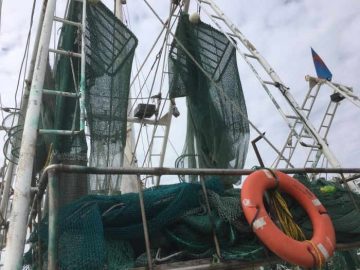 Shrimp boats that fish offshore already use TEDs. Turtle excluder devices use metal grates that prevent turtles from getting caught in the nets. The new rule would apply to skimmer nets, which generally shrimp in shallower waters. “It would affect about half of our fleet, which currently uses skimmer nets. They’ve been having to adhere to tow time restrictions. Now, they’ll have to use TEDs instead,” said Rick Burris, who directs the DMR Shrimp and Crab Bureau. The proposed regulation to expand the use of TEDs is the result of a federal lawsuit filed by a nonprofit conservation group called Oceana, which blames commercial fishermen for killing hundreds of sea turtles each year. “Certainly they’re being singled out. Oceana has had the shrimp industry as a target for a long time. Particularly as it relates to turtles,” said David Veal, executive director of the American Shrimp Processors Association. Veal says the statistics cited by the conservation group are suspect. Video, read the rest here 08:14
Shrimp boats that fish offshore already use TEDs. Turtle excluder devices use metal grates that prevent turtles from getting caught in the nets. The new rule would apply to skimmer nets, which generally shrimp in shallower waters. “It would affect about half of our fleet, which currently uses skimmer nets. They’ve been having to adhere to tow time restrictions. Now, they’ll have to use TEDs instead,” said Rick Burris, who directs the DMR Shrimp and Crab Bureau. The proposed regulation to expand the use of TEDs is the result of a federal lawsuit filed by a nonprofit conservation group called Oceana, which blames commercial fishermen for killing hundreds of sea turtles each year. “Certainly they’re being singled out. Oceana has had the shrimp industry as a target for a long time. Particularly as it relates to turtles,” said David Veal, executive director of the American Shrimp Processors Association. Veal says the statistics cited by the conservation group are suspect. Video, read the rest here 08:14
Activists Set Up A ‘Hotline’ For NOAA Climate Scientists To Tattle On Trump
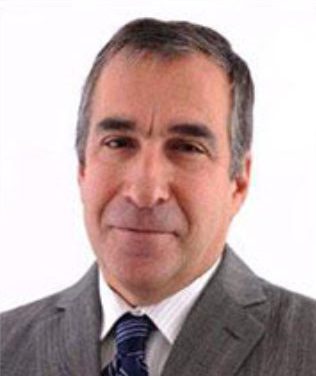 Environmentalist worry over President-elect Donald Trump reached new heights when activists set up an anonymous hotline for government climate scientists to report “political meddling” by the incoming administration. Bloomberg reports “outside scientists are setting up an anonymous hotline for the National Oceanic and Atmospheric Administration’s employees to report political meddling” over fears Trump could delete public climate data and silence researchers. “I am hearing a lot of worry,” Pew schmoo Andrew Rosenberg, a top activist at the at the Union of Concerned Scientists (UCS) in Cambridge, Mass., told Bloomberg. “The worry is that they will be putting another ideologue in place.” UCS set up the hotline for climate scientists in the wake of news Trump’s administration could tamper with taxpayer-funded climate data. Interestingly enough, it’s a rumor they started. Read the rest here 18:06
Environmentalist worry over President-elect Donald Trump reached new heights when activists set up an anonymous hotline for government climate scientists to report “political meddling” by the incoming administration. Bloomberg reports “outside scientists are setting up an anonymous hotline for the National Oceanic and Atmospheric Administration’s employees to report political meddling” over fears Trump could delete public climate data and silence researchers. “I am hearing a lot of worry,” Pew schmoo Andrew Rosenberg, a top activist at the at the Union of Concerned Scientists (UCS) in Cambridge, Mass., told Bloomberg. “The worry is that they will be putting another ideologue in place.” UCS set up the hotline for climate scientists in the wake of news Trump’s administration could tamper with taxpayer-funded climate data. Interestingly enough, it’s a rumor they started. Read the rest here 18:06
Ryan Cleary risking it all for FISH-NL – ‘I’m doing this because I believe in it’
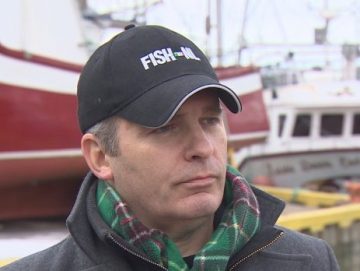 Ryan Cleary has been called a liar, a narcissist, an opportunist and more, but the leader of FISH-NL is fighting back, saying he’s sacrificing a lot because he believes strongly in the movement he’s leading. Cleary is not taking a salary, has racked up 9,000 kilometres on his vehicle travelling throughout the province, and put his own financial security in jeopardy. “I’ve cashed in my RRSPs to do what I’m doing right now because I believe in what I’m doing and I believe in taking any kind of salary would take away from my credibility,” told CBC News Wednesday And for those who question his honesty, Cleary issued this challenge: “For those who call me a liar and a narcissist, I have one question; About what? What am I lying about?” Read the story here 17:43
Ryan Cleary has been called a liar, a narcissist, an opportunist and more, but the leader of FISH-NL is fighting back, saying he’s sacrificing a lot because he believes strongly in the movement he’s leading. Cleary is not taking a salary, has racked up 9,000 kilometres on his vehicle travelling throughout the province, and put his own financial security in jeopardy. “I’ve cashed in my RRSPs to do what I’m doing right now because I believe in what I’m doing and I believe in taking any kind of salary would take away from my credibility,” told CBC News Wednesday And for those who question his honesty, Cleary issued this challenge: “For those who call me a liar and a narcissist, I have one question; About what? What am I lying about?” Read the story here 17:43
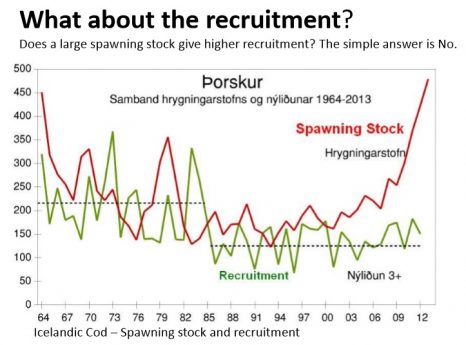
Fisheries management kills both fish stocks and fishermen
Fishery management seems only to reduce the fishery and to counterbalance that, fishermen are killed. The modern mathematical fishery management has been a total failure. Constant cuts in effort and quotas to protect stocks against supposed “over fishing” in order to build up stocks in order to get increased catches later have not lived up to the promises, least to say. But the orthodox science will not face the truth. Below is a link to a presentation I had on the subject at a recent conference in Faroe Islands. There they abandoned the quota system in 1996 and took up effort system, based on days at sea. But a constant reduction of days, to prevent over fishing, has ruined the fishing grounds. Please note that there is both English and Danish text in the presentation, saying the same thing. This presentation is about the result of fishery management. The scientists maintained that by reducing the catch of small fish they would grow bigger and give more catch later. In most cases this has not been the case, and we are still waiting for the later to come. Examples are shown. Read the presentation by Jon Kristjansson, fisheries scientist, Iceland Click here 16:36
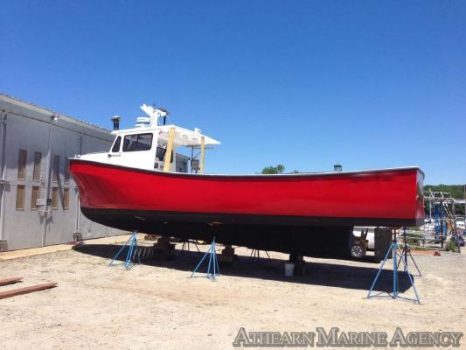
Athearn Marine Agency Boat of the Week: New 2016 45′ Long Beach Fiberglass Lobster boat, 750HP, 6 Cylinder John Deere
Specifications, information and 23 photo’s click here To see all the boats in this series, Click here 15:29
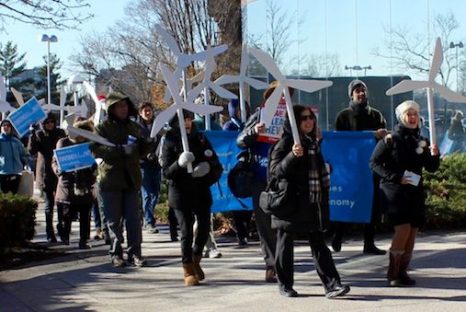
As the New York wind shills rallied, one fishing advocate stood alone.
More than 100 advocates for offshore wind, comprised of environmental and labor groups and politicians, rallied outside of Long Island Power Authority headquarters in Uniondale Tuesday morning urging the agency to sign a contract to purchase power from offshore wind. LIPA CEO Thomas Falcone, who sat with several model wind turbines on the table in front of him, told activists who packed LIPA’s board room for the agency’s monthly board of directors meeting after the rally that he expected to have a big announcement about offshore wind in the new year. Long Island Commercial Fishing Association Executive Director Bonnie Brady of Montauk was the one person in attendance at the LIPA meeting Tuesday who expressed skepticism about offshore wind, where the board took about half an hour of public comment. “The reality is, this is not a clean project,” she said, adding that there is a glut of power on Long Island, but the LIPA grid is broken. Read the story here 14:35
Maritime Link project will close stretch of lobster grounds for entire season
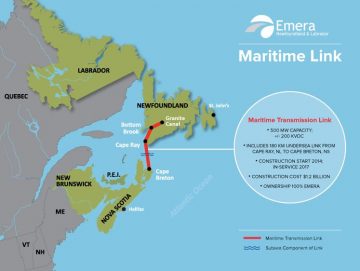 Cable laying and other offshore construction activity for the Maritime Link landfall at Cape Breton will close a three-kilometre long and 600-metre wide swath of ocean bottom to lobster fishing for the entire 2017 lobster season. Negotiations are underway to compensate fishermen from ports in Point Aconi, Big Bras d’Or and Alder Point. “We’re trying to work with them because we’re going to be laying the cable basically through their … lobster-harvesting zone next summer,” said Rene Gallant of NSP Maritime Link Inc. in a December update on the project. Ray Larkin, a lawyer representing the fishermen, said in an email that it’s premature to estimate the amount of compensation for lost landings and “any adverse environmental effects on lobster harvesting during the 2017 construction and during the eventual operation of the .” Read the story here 12:42
Cable laying and other offshore construction activity for the Maritime Link landfall at Cape Breton will close a three-kilometre long and 600-metre wide swath of ocean bottom to lobster fishing for the entire 2017 lobster season. Negotiations are underway to compensate fishermen from ports in Point Aconi, Big Bras d’Or and Alder Point. “We’re trying to work with them because we’re going to be laying the cable basically through their … lobster-harvesting zone next summer,” said Rene Gallant of NSP Maritime Link Inc. in a December update on the project. Ray Larkin, a lawyer representing the fishermen, said in an email that it’s premature to estimate the amount of compensation for lost landings and “any adverse environmental effects on lobster harvesting during the 2017 construction and during the eventual operation of the .” Read the story here 12:42
Enviros, Fishing interests balk at Obama’s exclusion of S.C. coastlines from drilling ban
 “We are extremely disappointed,” Frank Knapp, president and CEO of the South Carolina Small Business Chamber of Commerce and co-founder of the Business Alliance for Protecting the Atlantic Coast, told The Post and Courier. Last week, Knapp’s organization, representing 35,000 businesses and 500,000 commercial fishing families, delivered a letter to the Obama administration asking for a ban on drilling and seismic testing. “Oil and gas exploration and development activities threaten the vibrant coastal environment that supports nearly 1.4 million jobs and contributes $95 billion to the annual gross domestic product, mainly through tourism, commercial fishing and recreation,” Knapp and fellow BAPAC members wrote. “Our currently thriving East Coast businesses are reliant upon healthy ocean ecosystems and are inextricably tied to clean, coastal waters.” The pleas appeared to have fallen on deaf ears. Read the rest here 11:42
“We are extremely disappointed,” Frank Knapp, president and CEO of the South Carolina Small Business Chamber of Commerce and co-founder of the Business Alliance for Protecting the Atlantic Coast, told The Post and Courier. Last week, Knapp’s organization, representing 35,000 businesses and 500,000 commercial fishing families, delivered a letter to the Obama administration asking for a ban on drilling and seismic testing. “Oil and gas exploration and development activities threaten the vibrant coastal environment that supports nearly 1.4 million jobs and contributes $95 billion to the annual gross domestic product, mainly through tourism, commercial fishing and recreation,” Knapp and fellow BAPAC members wrote. “Our currently thriving East Coast businesses are reliant upon healthy ocean ecosystems and are inextricably tied to clean, coastal waters.” The pleas appeared to have fallen on deaf ears. Read the rest here 11:42
Coast Guard responds to medical emergency of fishing captain off Hull, Massachusetts
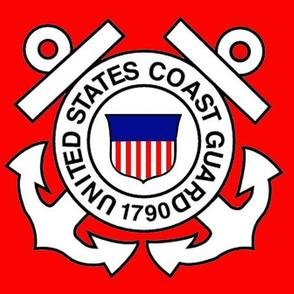 The Coast Guard responded to a distress call Tuesday outside of Boston Harbor after a fisherman noticed their captain was unwell. Watchstanders at Coast Guard Sector Boston received a radio call on VHF 16 at 4:15 p.m. from the crew of the 44-foot lobster boat, homeported in Winthrop, MA, reporting their captain was displaying stroke-like symptoms and was unresponsive. A 29-foot response boat crew already underway from Station Point Allerton diverted and arrived on scene within ten minutes. The boat crew took over CPR, used a defibrillator, and transported him to Reserve Channel where Boston Emergency Medical Services was waiting. The captain was transferred to Massachusetts General Hospital where he was pronounced dead. “It is always hard to lose a loved one, especially during this time of year, and our hearts go out to the crew and the captain’s family,” said Lt. John Gustus, the command duty officer at Sector Boston. link 11:06
The Coast Guard responded to a distress call Tuesday outside of Boston Harbor after a fisherman noticed their captain was unwell. Watchstanders at Coast Guard Sector Boston received a radio call on VHF 16 at 4:15 p.m. from the crew of the 44-foot lobster boat, homeported in Winthrop, MA, reporting their captain was displaying stroke-like symptoms and was unresponsive. A 29-foot response boat crew already underway from Station Point Allerton diverted and arrived on scene within ten minutes. The boat crew took over CPR, used a defibrillator, and transported him to Reserve Channel where Boston Emergency Medical Services was waiting. The captain was transferred to Massachusetts General Hospital where he was pronounced dead. “It is always hard to lose a loved one, especially during this time of year, and our hearts go out to the crew and the captain’s family,” said Lt. John Gustus, the command duty officer at Sector Boston. link 11:06
Pacific Fisheries Management Council Nominated for ‘Shark Enemy’ Award!
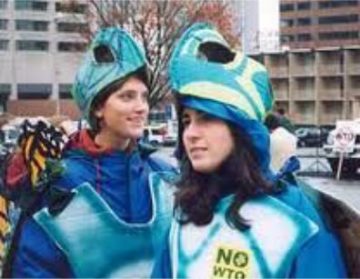 This week Turtle Island Restoration Network, a leading international marine conservation organization, and fellow environmentalists officially nominated the Pacific Fisheries Management Council (PFMC) for the ‘Shark Enemy’ award by the conservation organization Sharkproject International. The PFMC was nominated for this dishonor based on the council’s anti-shark-conservation policies, most notably their decisions to continue to allow the California drift gillnet fishery to target the common thesher shark, and harm, kill and further endanger thousands of sharks. In a ten-year period ending in 2014, this the fishery caught a staggering 26,217 sharks. For over a decade, the PFMC has failed to reduce the fishery’s catastrophic bycatch of sharks to a reasonable level. (what quackery!) Read the rest here 10:52
This week Turtle Island Restoration Network, a leading international marine conservation organization, and fellow environmentalists officially nominated the Pacific Fisheries Management Council (PFMC) for the ‘Shark Enemy’ award by the conservation organization Sharkproject International. The PFMC was nominated for this dishonor based on the council’s anti-shark-conservation policies, most notably their decisions to continue to allow the California drift gillnet fishery to target the common thesher shark, and harm, kill and further endanger thousands of sharks. In a ten-year period ending in 2014, this the fishery caught a staggering 26,217 sharks. For over a decade, the PFMC has failed to reduce the fishery’s catastrophic bycatch of sharks to a reasonable level. (what quackery!) Read the rest here 10:52
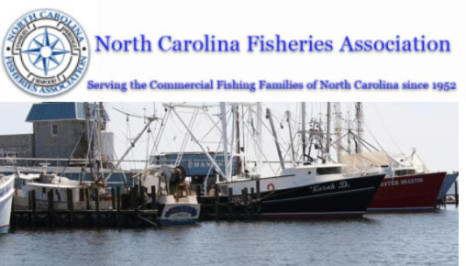
North Carolina Fisheries Association Weekly Update for December 19, 2016
Click here to read the Weekly Update, to read all the updates, Click here 10:05
Coral plan threatens fishing grounds
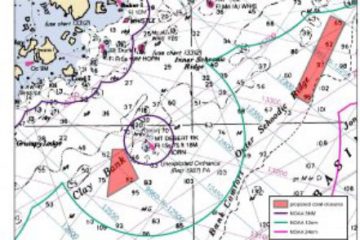 The NEFMC is working with the Mid-Atlantic Fishery Management Council and the South Atlantic Fishery Management Council to preserve deep-sea corals from the Canadian border to Virginia. Area lobstermen could lose valuable fishing grounds if a federal proposal to close four areas of Gulf of Maine waters comes to fruition. The New England Fishery Management Council (NEFMC) has drafted a plan that would close a span of 161 square miles offshore to commercial fishing in an effort to conserve deep-sea coral there. Two of those areas, Mount Desert Rock in Lobster Management Zone B and Outer Schoodic Ridge in Lobster Management Zone A, are preferred fishing grounds for local fishermen when lobster head further offshore in the winter. The other proposed offshore closure areas lie in Jordan Basin and Lindenkohl Knoll to the south. Read the story here 09:34
The NEFMC is working with the Mid-Atlantic Fishery Management Council and the South Atlantic Fishery Management Council to preserve deep-sea corals from the Canadian border to Virginia. Area lobstermen could lose valuable fishing grounds if a federal proposal to close four areas of Gulf of Maine waters comes to fruition. The New England Fishery Management Council (NEFMC) has drafted a plan that would close a span of 161 square miles offshore to commercial fishing in an effort to conserve deep-sea coral there. Two of those areas, Mount Desert Rock in Lobster Management Zone B and Outer Schoodic Ridge in Lobster Management Zone A, are preferred fishing grounds for local fishermen when lobster head further offshore in the winter. The other proposed offshore closure areas lie in Jordan Basin and Lindenkohl Knoll to the south. Read the story here 09:34


































